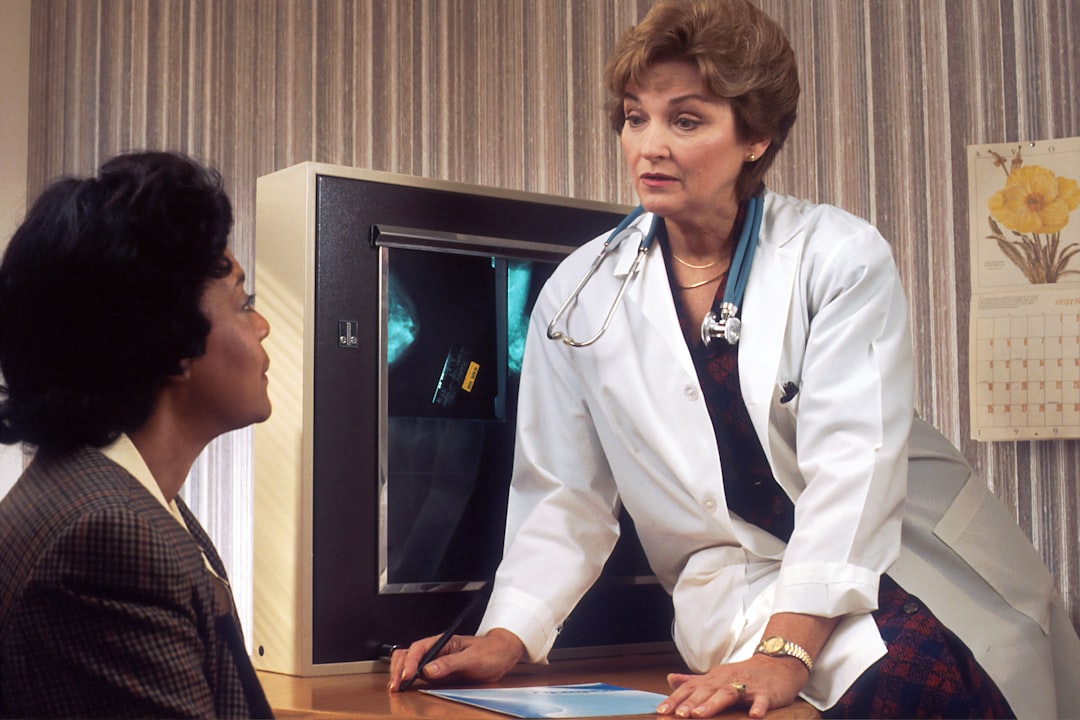

Doctor misconduct can take many forms, ranging from negligence and incompetence to more severe acts such as fraud and sexual misconduct. Negligence occurs when a doctor fails to provide the standard of care expected in their field, resulting in harm to the patient. This could include misdiagnosing a condition, prescribing incorrect medication, or performing surgery without proper training or consent.
Incompetence refers to a doctor's lack of knowledge or skills necessary to practice medicine safely and effectively. This may manifest as repeated errors in diagnosis or treatment, failure to keep up with current medical practices, or simply not being able to perform basic medical procedures.
Fraud involves deliberately deceiving patients, insurance companies, or government programs for financial gain. This could include billing for services that were never provided, falsifying medical records, or accepting kickbacks for referrals.
Sexual misconduct is perhaps one of the most egregious forms of doctor misconduct. This includes any inappropriate sexual behavior towards patients, such as harassment, exploitation, or engaging in sexual relationships with them.
It is important for patients to be aware of these different types of misconduct so they can recognize when their doctor's behavior is unethical or harmful. If you suspect that your doctor is engaging in any form of misconduct, it is crucial to report it to the appropriate authorities so that action can be taken to protect other patients from harm.
Doctor misconduct can have severe consequences on patients and the healthcare system as a whole. When doctors engage in unethical behavior or malpractice, it not only harms individual patients but also erodes trust in the medical profession.
Patients who are victims of doctor misconduct may suffer physical harm, emotional trauma, and financial loss. Misdiagnosis, unnecessary surgeries, prescription errors, and sexual misconduct are just a few examples of doctor misconduct that can have devastating effects on patients' health and well-being. In some cases, doctor misconduct can even result in permanent disability or death.
Furthermore, doctor misconduct undermines the integrity of the healthcare system. Patients rely on doctors to provide them with competent and ethical care, and when doctors fail to meet these standards, it damages the reputation of the entire profession. Trust is essential in the doctor-patient relationship, and when that trust is broken due to misconduct, patients may be less likely to seek medical treatment or follow medical advice.
In addition to harming individual patients and undermining trust in the healthcare system, doctor misconduct can also have financial implications. Medical malpractice lawsuits can result in costly settlements for hospitals and insurance companies, leading to higher healthcare costs for everyone.
Overall, it is crucial for doctors to uphold high ethical standards and provide quality care to their patients. By holding doctors accountable for their actions and ensuring they adhere to professional codes of conduct, we can help prevent the harmful consequences of doctor misconduct on patients and the healthcare system.

In today's world, we trust medical professionals with our lives.. We rely on them to provide us with the best possible care and treatment when we are sick or injured.
Posted by on 2024-10-21

Medical malpractice is a serious issue that can have long-lasting effects on patients and their families.. When medical professionals make mistakes that result in harm or injury, it is important for patients to receive fair compensation for their losses.
Posted by on 2024-10-21

When it comes to our health, we put our trust in medical professionals to provide us with the best care possible.. Unfortunately, mistakes can happen and medical errors may occur, leaving patients with serious consequences.
Posted by on 2024-10-21

Choosing the best medical malpractice lawyer for your case can be a daunting task.. With so many options out there, it's important to do your research and make an informed decision.
Posted by on 2024-10-21
Doctors have a crucial role in society, as they are responsible for the health and well-being of their patients. To ensure that doctors provide the best possible care, there are regulations and professional standards that they must adhere to.
One of the most important aspects of being a doctor is maintaining ethical behavior. Doctors are expected to act with honesty, integrity, and respect towards their patients and colleagues. They must also maintain patient confidentiality and ensure that they do not exploit their position for personal gain.
In addition to ethical standards, doctors are also required to follow various regulations set forth by governing bodies such as medical boards and professional associations. These regulations cover a wide range of topics, including licensing requirements, prescribing practices, and standard of care.
When doctors fail to uphold these regulations and professional standards, it is considered misconduct. Doctor misconduct can take many forms, ranging from negligence in patient care to fraud or abuse of power. It is essential for doctors to be aware of the consequences of misconduct and strive to avoid unethical behavior at all costs.
Overall, adherence to regulations and professional standards is essential for maintaining the trust and confidence of patients in the medical profession. By following these guidelines, doctors can ensure that they provide high-quality care while upholding the values of integrity and professionalism.

Doctor misconduct is a serious issue that can have devastating consequences for patients and erode trust in the medical profession. It is crucial to examine the factors that may contribute to this misconduct in order to prevent it from occurring in the future.
One key factor that has been linked to doctor misconduct is burnout. Doctors are often under immense pressure and work long hours, which can lead to physical and emotional exhaustion. Burnout can impair judgment and decision-making, increasing the likelihood of mistakes or unethical behavior. It is important for healthcare organizations to prioritize physician well-being and provide support systems to help doctors cope with stress and prevent burnout.
Another factor that may contribute to doctor misconduct is lack of oversight. In some cases, doctors may not be held accountable for their actions due to inadequate supervision or monitoring. This can create an environment where unethical behavior goes unchecked, leading to potential harm to patients. Healthcare institutions must implement robust oversight mechanisms, such as peer review processes and regular performance evaluations, to ensure that doctors adhere to ethical standards and provide high-quality care.
In conclusion, examining the factors that may contribute to doctor misconduct, such as burnout and lack of oversight, is essential for promoting a culture of accountability and patient safety in healthcare settings. By addressing these root causes and implementing preventive measures, we can work towards preventing doctor misconduct and upholding the integrity of the medical profession.
Doctor misconduct is a serious issue that can have devastating consequences for patients. There have been several high-profile incidents over the years that have shed light on this problem. One such case is that of Dr. Michael Swango, a former physician who was convicted of poisoning patients in the United States.
Another example is the case of Dr. Harold Shipman, a British doctor who was found guilty of murdering over 200 of his patients by administering lethal doses of medication. These are just a few examples of doctors who have abused their position of trust and authority to harm those under their care.
These cases serve as a stark reminder of the importance of holding healthcare professionals accountable for their actions. Patients put their trust in doctors to provide them with safe and effective care, and when that trust is violated, it can have far-reaching consequences.
It is essential for medical boards and regulatory bodies to take swift action when allegations of misconduct arise to protect patients from harm. By addressing doctor misconduct head-on, we can work towards ensuring that all patients receive the quality care they deserve.
Doctor misconduct is a serious issue that can have detrimental effects on patients and the medical field as a whole. It is important to take proactive measures to prevent and address this type of behavior in order to maintain trust and integrity within the healthcare system.
One suggestion for preventing doctor misconduct is to implement thorough background checks and screening processes before hiring new medical professionals. This can help identify any red flags or past instances of misconduct that may indicate a potential problem in the future. Additionally, ongoing monitoring and evaluation of doctors' performance can help catch any issues early on before they escalate.
Another important step in addressing doctor misconduct is to establish clear codes of conduct and ethical guidelines that all medical professionals are expected to adhere to. By clearly outlining expectations for behavior, doctors are more likely to understand the consequences of their actions and be held accountable for any violations.
Furthermore, creating a safe environment where patients feel comfortable reporting any concerns or complaints about their doctors is essential in addressing misconduct. Encouraging open communication and transparency can help ensure that any issues are addressed promptly and effectively.
Overall, it is crucial for healthcare organizations to prioritize ethics and accountability in order to prevent and address doctor misconduct. By taking proactive measures and promoting a culture of integrity, we can work towards ensuring the well-being and safety of patients in the medical field.